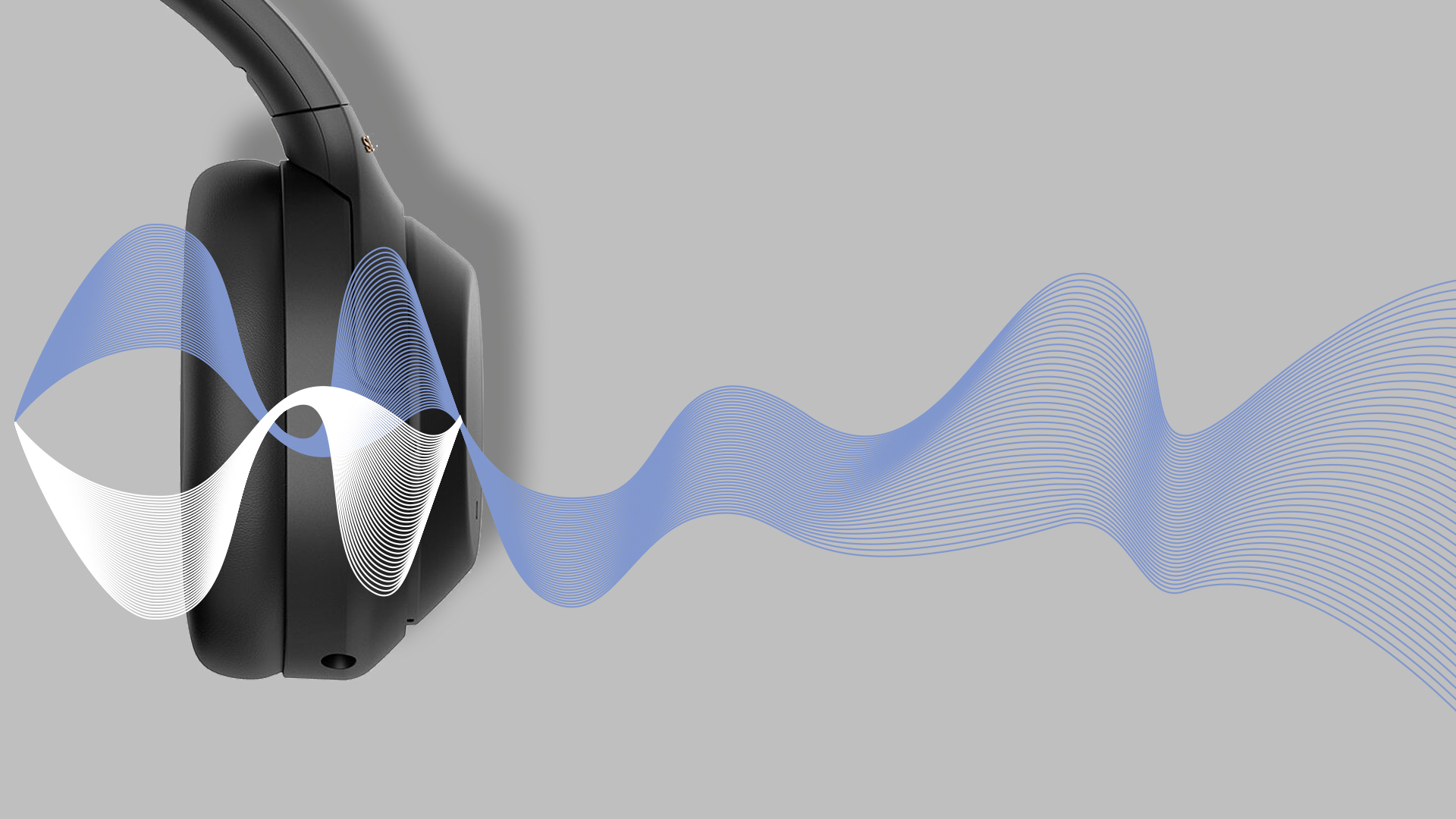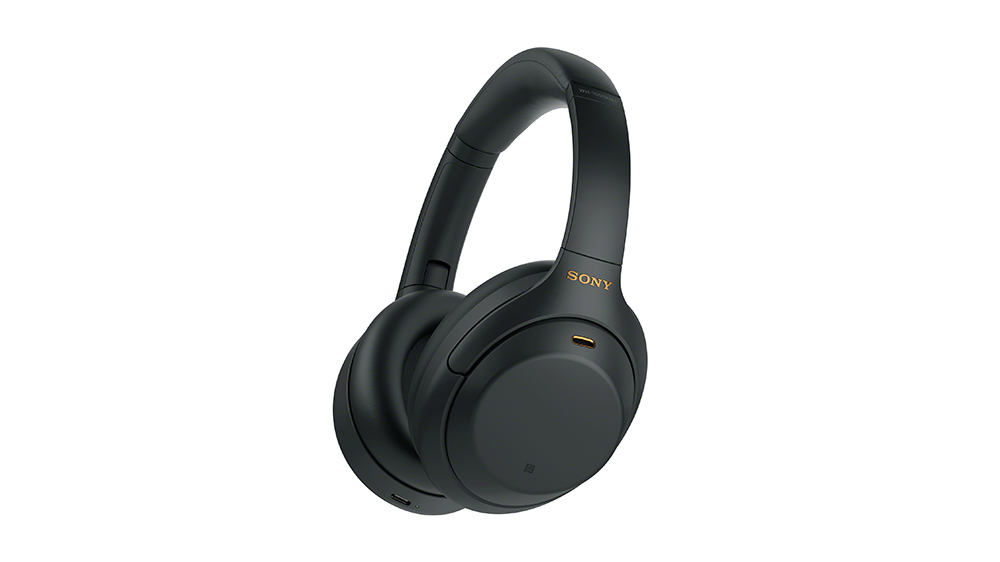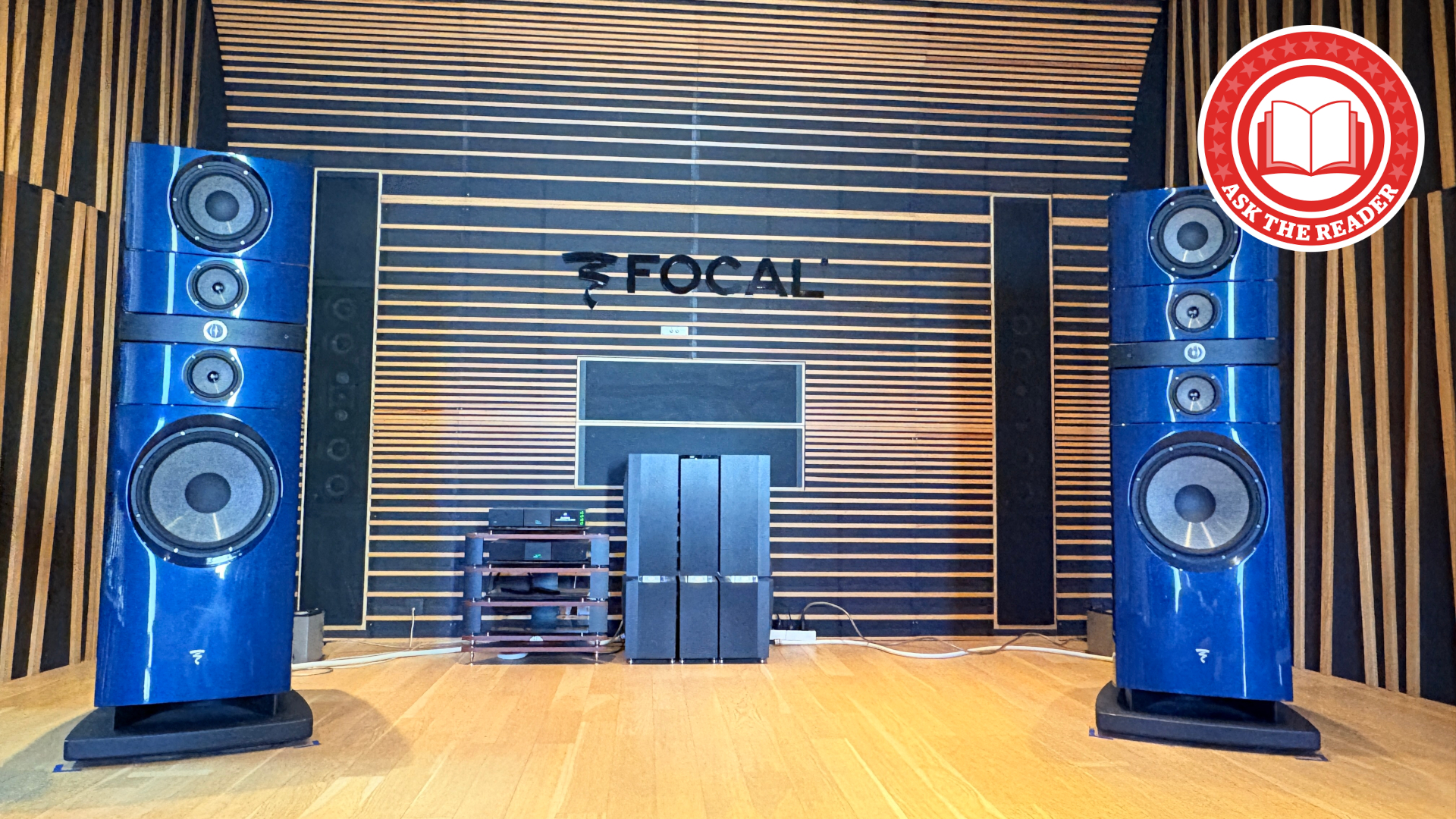Why I will never own a pair of noise-cancelling headphones
(And it has nothing to do with sound quality)

When the What Hi-Fi? team receives a shiny new set of wireless headphones for review, if noise-cancelling isn't on the feature list the product may as well go home and come back only when it has tried harder – unless it has atoned for this glaring omission with supreme sonic capabilities or an alternative and striking USP.
Just as wireless headphones have replaced wired headphones for so many of us in recent years, so noise-cancelling has become an essential feature on the checklist. All of which makes the following admission problematic – but, dear reader, I'm afraid to say that noise-cancelling headphones just aren't for me.
As sure as I stick a set of cans over my ears every morning, this sordid little secret has felt akin to saying I don't think Dolby Atmos has done much for home cinema, or that I don't rate high-resolution audio (I do, and I do).
Why? It's a three-pronged issue. And admittedly, one of those issues is pretty niche.
Noise-cancelling nauseation
First and foremost, I find deploying ANC nauseating – and I have it on good authority that this is a thing. There are a few reasons for it. A headphone is a closed piece of equipment in that it entirely covers (or goes into, to create a seal) your ear and – while I realise it's stating the obvious – our ears are not closed by design. When walking around and exposing our lug-holes on a day-to-day basis, we don’t experience ambient changes in pressure. You’ll be familiar with these changes or 'pops' from air flight or going up a ski lift, say, but in a closed headphone you can sometimes get that pressure-change effect, and that can make the wearer queasy.
Another possible reason for my nausea is a subsonic modulation – I can’t hear any change in pressure or sound, but I can feel it – because my eardrums are being pushed in and out by slight discrepancies in the ANC, and that is potentially nauseating. Again, most modern designs have tackled this issue, but some individuals suffer more than others – and I'm clearly one of them.
My second issue is a personal safety concern. I feel disorientated and even lose my balance when wearing ANC headphones. "A lot of the time nausea is induced when you have a cue that doesn’t make sense – an auditory cue that doesn’t match your surroundings, or a visual cue that doesn’t match your auditory cue," says KEF's head of acoustics, Jack Oclee-Brown, trying kindly to explain my weirdness away.
The latest hi-fi, home cinema and tech news, reviews, buying advice and deals, direct to your inbox.
Now, I'm the first to admit that I'm a strange beast. My previous profession is niche in the extreme: I was a professional dancer and aerialist. It's a calling that involves spinning wildly on a hoop, silks, or a metallic cube, a long way from the ground – always with musical accompaniment, but also listening out for sonic clues such as my partner's voice (to avoid slapping him in the face) or the echo of an auditorium (so I can tell how far I am from hitting a stage or wing). It has been proven that when you cut off one sense – in my case, vision – another essentially takes over; see the success of listening in complete darkness as hosted by Pitchblack Playback. When the world became a blur during performance, I clearly learned to lean heavily on sound as a means of balance and safety. I was even known to give the odd yelp to steady myself – yes, in the same way a bat uses sonar.
"Without being conscious of it, you’re always assessing the scene that you’re in, both visually and in terms of your hearing. And if you make a disconnect between them, i.e. you can’t hear what’s around you and you’re moving around, it can be quite disorienting," says Oclee-Brown. His words strike a chord.
But other than me and perhaps Kylie Minogue, most people don't spend quite so much time spinning around. So a more common safety concern when using noise-cancelling equipment is when you're walking, running or cycling. Taking away a sense which, albeit subconsciously, you’re very reliant on, feels dicey. I was once told by a colleague, "Your ears are your mirrors, on a bike" and to immobilise them seems highly dangerous.
Complete silence is rare and unnerving
Thirdly, and most controversially, I'm unsure whether ANC is the healthiest way to listen, for a few reasons not mentioned above. Studies have shown that humans respond quicker to a sonic cue than they do a visual one. Our ear is tuned to respond with particular trepidation towards treble frequencies, think a twig snapping in the woods, or the fact that track races start to the sound of a gun rather than the raising of a flag. Complete silence is rare and unnerving. It is often used in films to create a sense of terror in dystopia – think Eleven stuck in the Upside Down in Stranger Things, or Chris's silent screams from the Sunken Place in Get Out.
After visiting the headquarters of Iris last year, a firm that prides itself on creating a set of headphones that will provide your 10,000 steps a day aurally, one doesn't necessarily have to agree with every aspect of the company rhetoric to accept the idea that our brains are actively looking out for sonic cues as a means of self-preservation, and that by quashing even low-level noises through ANC, our brains are receiving confusing signals, particularly if we're on the move.
It put me in mind of a study carried out on the effects of artificial sweeteners made from aspartame. Here, the brain believes the body is receiving sugar and so releases serotonin (the happy hormone), but of course, no actual sugar or calorific value has been ingested. The resulting neurobehavioral discrepancy has been linked to mood swings and even depression. The inconsistency whereby the brain actively looks for background noise it knows should be there, but finds none, is of course easy to remedy by removing your headphones or at least dialling down the ANC, but perhaps it's worth considering the effects of what we feed into our bodies both nutritionally and sonically and being a little more truthful with these? A stretch, perhaps, but a suggestion nonetheless.
That said...
So now that I have explained myself – and in an effort to dissuade the anticipated hate mail – here are some reasons you may very well enjoy noise cancelling, even if I do not: the tech behind noise-cancelling is extremely effective. Furthermore, the anti-noise created by ANC technology is not damaging to your hearing on any level – a truth that has been proven by trusted experts. "That idea of, 'I'm hearing nothing, but am I being exposed to noise?' No, you’re not, you’re not being exposed to noise. There’s no hidden danger of any kind of hearing loss from noise cancelling, that’s the number one thing. You do not perceive, on any level, the anti-noise" confirms Oclee-Brown.
We have a whole feature on how ANC works, but essentially, low-level, constant ambient noise is recorded by the headphone, with a little microphone. It then creates and sends out an 'anti-noise' signal from the speaker in the headphone so that it cancels the incoming noise. And this works very well indeed.
In very early designs, some noise-cancelling headphones would pick up wind coming past the microphone, and that could occasionally cause a static pressure change in the ear cavity that’s disturbing, because we wouldn’t otherwise come across it, but in modern designs – anything released within the past six years – this has been dealt with.
Secondly, although the chipset, mics, and rigorous testing needed to achieve effective noise cancellation may drive up the price of a set of in- or over-ears, I do not believe sound quality is at all compromised by ANC when it has been done well – even within a price category and against non-ANC products. Again, I defer to Mr. Oclee-Brown's expertise: "The thing that’s quite tricky [with ANC headphones] is that you’re not capturing the noise in the same place as you’re omitting it, from the headphone, and you also have the influence of the [ear]cup and so on. It’s challenging to do it – but if you manage to cancel it, it’s gone."

Third, despite having raised concerns over the potential negative impacts on the health and wellbeing of wearers, I fully recognise the significant health benefits of noise-cancelling. The NHS widely encourages the use of ANC headphones, not just to promote listening at lower volumes and thus protect your hearing, but because noise annoyance is a real health issue. If you’re in a perpetually noisy working environment, continual exposure is fatiguing and damaging to your hearing – and that's before we get into medical case studies concerning persistent noises in those of us who are less mobile. Various studies on hospitalised people with long-term illnesses showed that the effect of a piece of constantly-beeping machinery on a patient's wellness and psychosis could be extreme – and this can be greatly eased with both ANC and music.
Oclee-Brown also extols the benefits of the ambient aware feature that goes hand in hand with modern ANC headphones – the toggle that filters external noise in. At home, this option makes it far more sociable to wear headphones. If your other half wants to watch TV and you're immersed in music, say, switch it on and lo! You'll stay abreast of the big plot-points. Quite right too.
Originally, when noise-cancelling headphones ceased to be the preserve of pilots landing aeroplanes and became available to mere mortals, most people doubtless sat on an aircraft to listen with noise cancelling, or at their desk. But the tech has since been distilled into in-ear true wireless designs, which scream portability – should these come with a warning? I think so.
I have no issue with noise-cancelling headphones used solely on flights, in bed, or when completely sedentary. But that isn't my way and, to quote The Smiths, it says nothing to me about my life. I dance, I walk, I sing as I listen. I hope many of us do.
If you take just one piece of advice away from this missive, let it be that if noise cancelling is high on your wishlist, consider investing in one of the best noise cancelling headphones for sitting at your desk or armchair, and another set – without ANC – for heading into the great outdoors. Yes, you could simply switch your noise-cancelling profiles off, but would you back yourself to remember?
MORE:
Why adding a music streamer to my hi-fi system has been a revelation (and a frustration)
And why not join us for the What Hi-Fi? Virtual Show on Saturday 24th April?
Love noise-cancelling? See our pick of the best wireless noise-cancelling headphones 2021
Becky has been a full-time staff writer at What Hi-Fi? since March 2019. Prior to gaining her MA in Journalism in 2018, she freelanced as an arts critic alongside a 20-year career as a professional dancer and aerialist – any love of dance is of course tethered to a love of music. Becky has previously contributed to Stuff, FourFourTwo, This is Cabaret and The Stage. When not writing, she dances, spins in the air, drinks coffee, watches football or surfs in Cornwall with her other half – a football writer whose talent knows no bounds.
